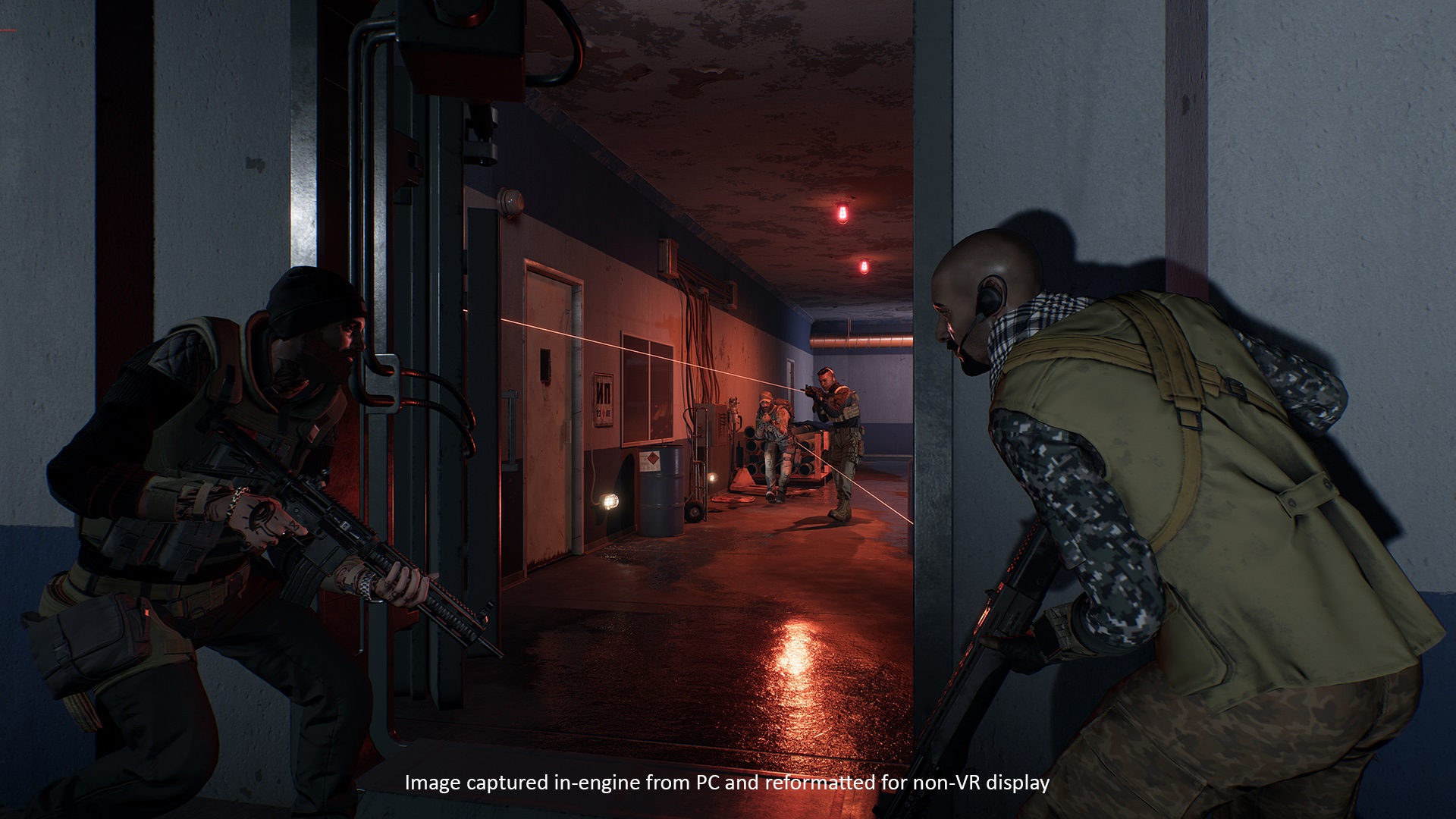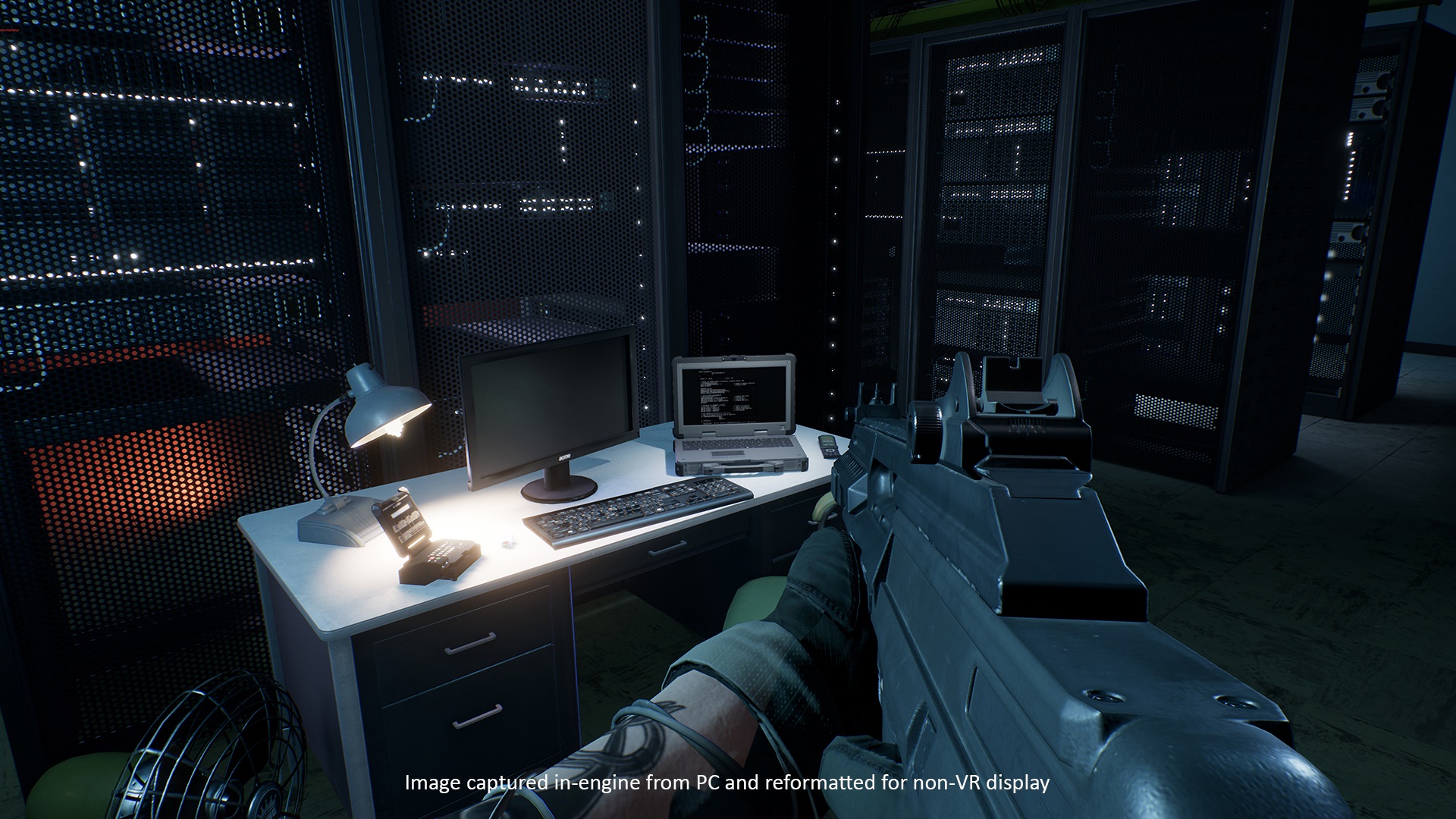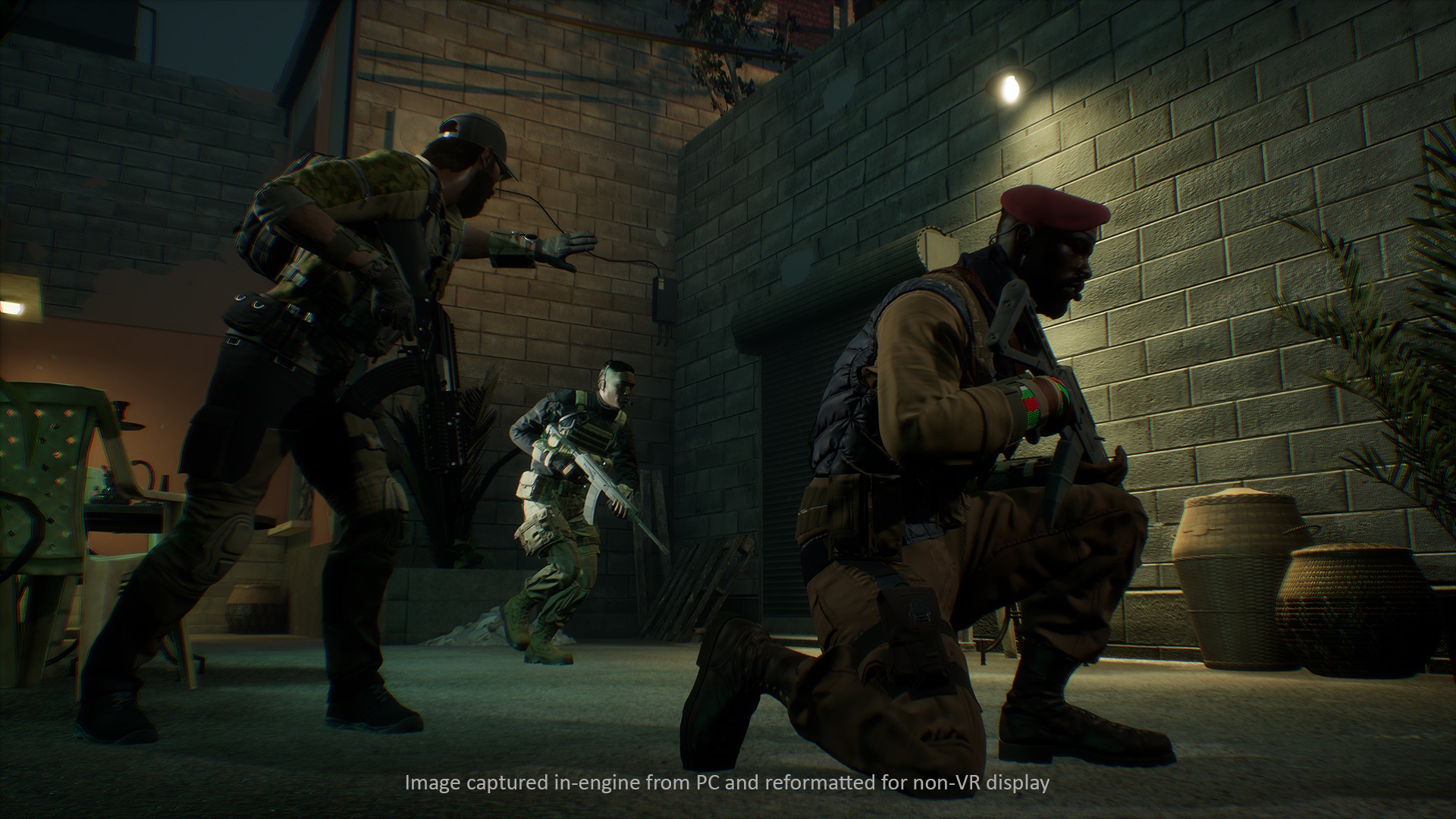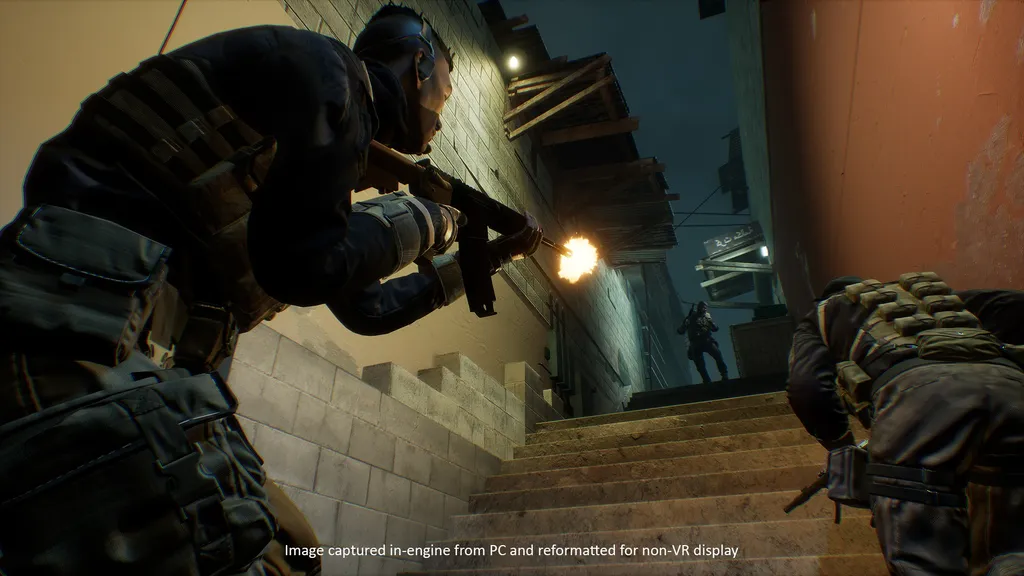When developers first started theorizing the modern era of virtual reality headsets, I’d wager that shooters were a big part of the design discussions. Most of the great shooters are first-person games, which naturally lends itself to VR, and motion controllers are a great fit for holding things like gun in your hands. They even have triggers on them, or can be enjoyed with a gamepad and still feel good — especially if the game is focused on a cockpit.
When the PSVR launched it came with Rigs, a fast-paced mech shooter that embodied a fake sport with multiple game modes, mech classes, weapon types, and more. It was incredibly fun, but the studio eventually got shut down. The first couple years of VR then were mostly marked by a flood of wave shooters that did little to inspire creativity.
Eventually, Onward released on Steam for Vive (and eventually Rift) to bring hardcore, military-simulation style gameplay to the VR market with slow-paced, realistic firefights that felt like something out of a Rainbow Six or Ghost Recon game. People ate it up.
When the PSVR got its PS Aim Controller, Farpoint, a single-player focused (although it has co-op and limited 1v1 modes) shooter about aliens and space came along with it. It’s a good game, but doesn’t really offer the same type of military simulation thrills. Bravo Team seemed like it might fill that void when it was shown during E3 last year, but that wasn’t the case at all.
Now we’ve got Firewall: Zero Hour from First Contact. ROM: Extraction wasn’t exactly the most robust VR shooter, so I was hesitant at first. But after playing Firewall twice (both at PSX and then again at a pre-E3 event) I’m extremely optimistic about its future.
“In terms of the core foundational aspect of what a team shooter is we aren’t reinventing the wheel, but we’re putting our own spin on it and we’re trying to do something interesting and unique through VR,” said Adam Orth, creative strategist at First Contact during an interview. “We want to have the most people playing our game, PSVR has the most headsets in the world, and there is a vacuum where this game needs to be. We saw that early on and based on the history our studio has of what we’ve made individually and together, as well as in VR, and what we wanted to accomplish tech-wise for a shooter, this was the project for us to do.”

Having played most of the other VR and non-VR shooters that Firewall owes its inspiration to, the impact that VR has on its design can’t be overstated. I’ve played Onward and Pavlov, I’ve played Rainbow Six and Ghost Recon, and I can say that Firewall feels about as grounded as fans of tactical team-based shooters have come to expect, but with added layers of immersion.
Not to mention using the PSVR’s Aim Controller just feels really really good. It was easily the highlight of playing through Farpoint and it adds so much to any shooter that supports it that it easily gives the PSVR a leg up on the competition. Since Sony controls that ecosystem so carefully, there’s no extraneous third party gun peripherals with dubious support, it’s just a first-party rifle that absolutely feels great and gets the job done.
“The PSVR Aim Controller is pretty cool, it honestly adds real immersion to everything,” said Orth. “But you can also play our game with the DS4 and that’s cool too, I prefer the DS4 personally, but I can see how moving the gun in the real world around a corner is fun and feels good.”
To be clear: this isn’t to say that Firewall is the “ultimate” VR shooter, or that it accomplishes everything a game in this genre would want to do, but it’s a step in the right direction. There won’t be a narrative single player campaign at all for example, but you can play through combat scenarios on different maps with different AI operatives solo, via co-op, or through online multiplayer. It’s a very flexible system.
“Right now we’re concentrating on shipping with this single Attack/Defend game mode,” said Orth. “It’s hard when you make a multiplayer game you fragment the player pool so you really want to concentrate on this mode, but there are definitely other modes we have thought about.”
For a game like Firewall, that leaves a lot of room for DLC to include new game modes, new operatives, new weapons or loadouts, and definitely new maps.
If you’ve tried games like Onward on a PC VR headset then there isn’t a whole lot new here that you haven’t seen, other than the PS Aim Controller, but for PSVR gamers (which is the majority of the VR market) this isn’t that far off from a revelation. Standing side-by-side with teammates, in VR, holding rifles, aiming around corners, tossing out grenades, breaching and clearing rooms — this is the type of stuff gamers have been doing for decades, just not in VR yet. Until now.

“Every contractor has their own permanent ability and then you can unlock another slot to add to that, so it feels like there is really good amount of, just in the lobby, strategizing,” explained Orth. “We’ve taken the other team out of the lobby and it’s just you and your three partners, so you decide loadout and contractors based on the map and the strategy you want to employ. A lot of shooters do this, but it just feels like, when you’re playing this game, the stakes of what you’re doing feel a lot higher because of the immersion of VR.”
And the same could be said for Firewall’s release. As E3 inches closer, this is the first time the game will be shown at the conference meaning more eyeballs than ever are about to experience the shooter. They’re still targeting a 2018 release date which means that this could very well end up being Sony’s big PSVR game for the holiday season. New PSVR bundles are likely on the way as well, which could mean prime placement for Firewall on store shelves.
It’s a big deal and the stakes, as Orth said, feel higher because of VR.

Firewall: Zero Hour is slated for a 2018 release exclusively on the PS4 for PSVR. Players will be able to experience the game with either the PS Aim Controller or the standard DualShock 4 gamepad.
Let us know what you think of the game so far down in the comments below!


























